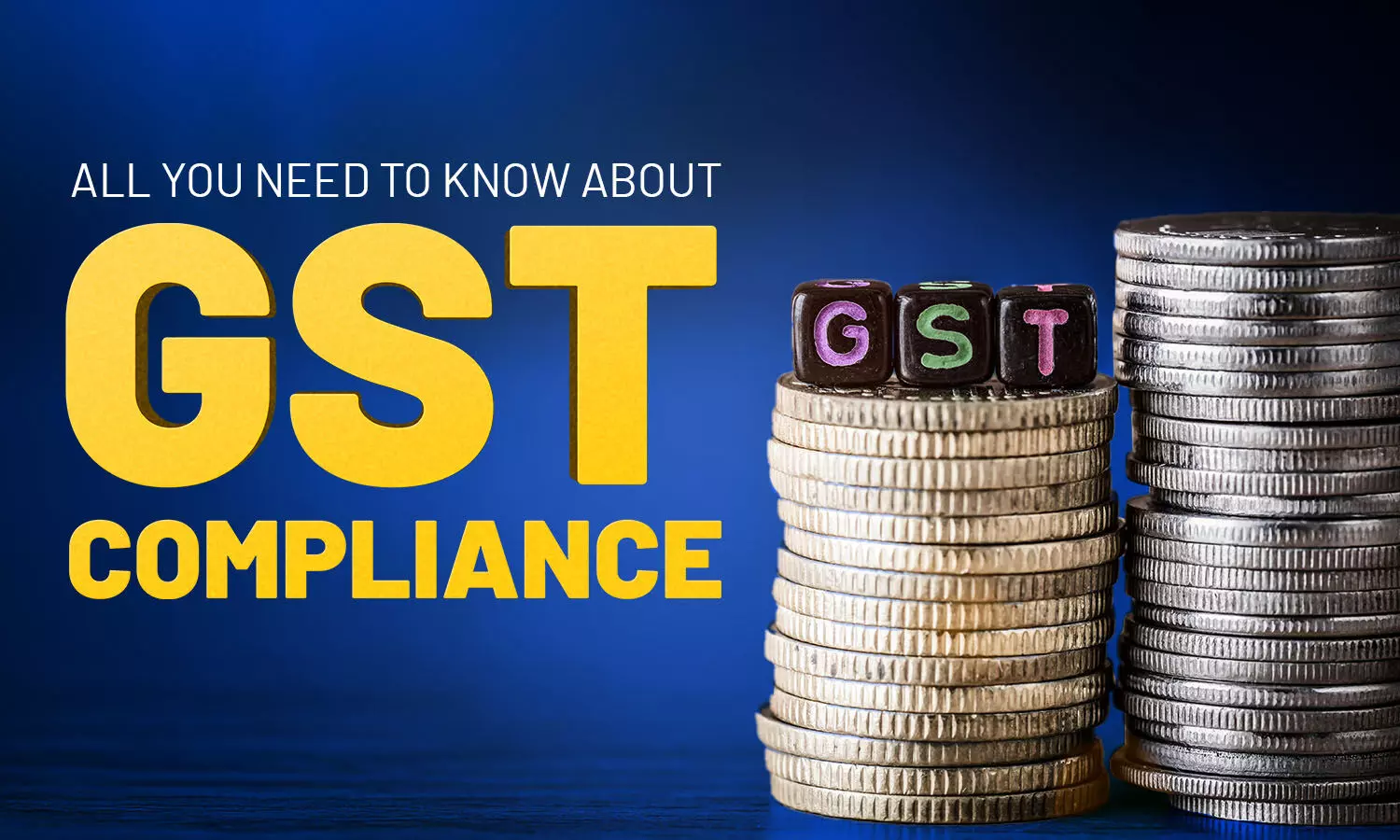All you need to know about GST Compliance
Discover common GST compliance challenges and practical solutions to streamline your business's tax filing processes.
All you need to know about GST Compliance

The introduction of the GST (Goods and Services Tax) has revolutionised the taxation landscape in India with a pivotal shift to muti-stage tax system from multiple tax system earlier (VAT, service tax, excise duty etc.). GST offers better cash flow across the financial system due to its key feature ITC (Input Tax Credit) system. The compliance in the GST system is higher due to its fundamental structure. Therefore, one should be mindful of the fundamentals of GST Compliance to avoid any bumpy ride.
What is GST compliance?
GST compliance is a mandatory protocol for businesses and services supplying goods and services within India. The first and foremost important step towards GST compliance is registration under GST. But before that one needs to ascertain the liability of GST. Not every business is required to register under GST. The need to register depends on the aggregate annual turnover:
- Businesses must register for GST if their annual turnover exceeds INR 40 lakhs (INR 20 lakhs for specific states like Arunachal Pradesh, Manipur, and others).
- For service providers, the registration threshold is INR 20 lakhs (INR 10 lakhs for certain northeastern and hilly states).
Several categories including interstate suppliers, e-commerce operators, businesses selling goods through e-commerce platforms, entities responsible for collecting TDS/TCS, and several other specified groups are liable to mandatorily register for GST even if the annual aggregate turnover is below the threshold limit.
Key Challenges in GST Compliance
A lack of understanding of the fundamentals of GST is the biggest challenge in ensuring compliance with GST. The challenges are daunting for particularly small and medium-sized enterprises (SMEs) that lack any resource or expertise in handling GST. A small mismatch can lead to incorrect filing and GST compliance issues, as a result. Apart from registration here are a few things to keep in check for proper compliance.
- Filing GST Returns: There are multiple types of GST returns applicable such as GSTR-1, GSTR-3B, GSTR-9, etc. each with its own set of requirements. Businesses often struggle with the understanding of the applicability of these forms in their case, which creates GST filing difficulties. The frequency of filing among the types of GST returns could be different for each. Finishing tax formalities before the GST filing deadline will make it easier.
- Utilising Input Tax Credit (ITC): The primary benefit of GST is the ability to claim Input Tax Credit (ITC), which allows businesses to improve cash flow and lessen tax liability. The processing of ITC is complicated and incorrect data can lead to GST Input Tax Credit challenges in business and subsequently cash flow problems and higher tax liability.
- Higher cost for GST Compliance: The cost of complying with GST regulations might be higher due to the requirement of hiring a tax professional as well as any GST software. This increases total outgo and the overall GST compliance burden. Additionally, businesses may face penalties and fines for non-compliance, which will further add up to the GST compliance costs.
- GST Audit: GST audit is carried out by an independent and external auditor and it involves a thorough examination of records, returns and other documents. GST audit challenges can arise from inadequate record-keeping, errors in reporting, and discrepancies in tax payments. It is mandatory for the businesses where annual turnover exceeds INR 5 crore. For audits, it is vital to maintain accurate and detailed records of transactions. Discrepancies between sales and purchase records can lead to compliance errors and challenges during audits. Thus, organised and structured record keeping is a thumb-rule in GST compliance protocols.
Steps to Navigate GST Compliance Challenges
- GST Compliance Software: GST compliance softwares are helpful in assisting and simplifying the filing process for all sizes of business and services. It can automate tax calculations, return filing, and invoice matching, which reduces the risk of errors and saves time. Automation can also help businesses stay updated with the latest GST regulations and changes. Being well versed about GST regulations and its compliance process is essential for the long haul.
- Build GST Compliance Guideline: A GST compliance checklist can help businesses stay organised and ensure that all compliance requirements are met. The checklist should include important tasks such as return filing deadlines, documentation requirements, and ITC claims. Regularly reviewing and updating the checklist can help businesses avoid missing critical compliance steps.
- Advisory from GST Compliance Support: Seeking GST compliance support from tax professionals and consultants can be beneficial, especially for businesses lacking in-house expertise. Tax experts can provide guidance on complex compliance issues, assist with return filing, and help businesses navigate audits and disputes.
- Adopting GST Compliance Best Practices: Implementing GST compliance best practices can help businesses maintain a high level of compliance. Best practices include regular reconciliation of invoices, timely filing of returns, accurate record-keeping, and staying updated with regulatory changes. Adopting these practices can minimise compliance risks and improve efficiency.
- Using Automation in GST Compliance: The application of GST compliance automation can streamline various compliance tasks, such as invoice matching, return filing, and ITC claims. Automation reduces manual intervention, minimises errors, and ensures that compliance tasks are completed on time. However, one should periodically reconcile transactions and financial statements to avoid any errors.
- Build Comprehensive Compliance Strategies: Developing comprehensive GST compliance strategies can help businesses proactively manage compliance risks. These strategies should include regular audits, risk assessments, and contingency plans for handling compliance issues. A well-defined strategy can help businesses stay prepared for any compliance challenges that may arise.
A Final Word
GST compliance is a critical aspect of business operations, and addressing compliance challenges is essential to avoid legal issues and financial penalties. By understanding common GST challenges and implementing effective GST solutions, businesses can streamline their compliance processes and reduce the risk of non-compliance.

